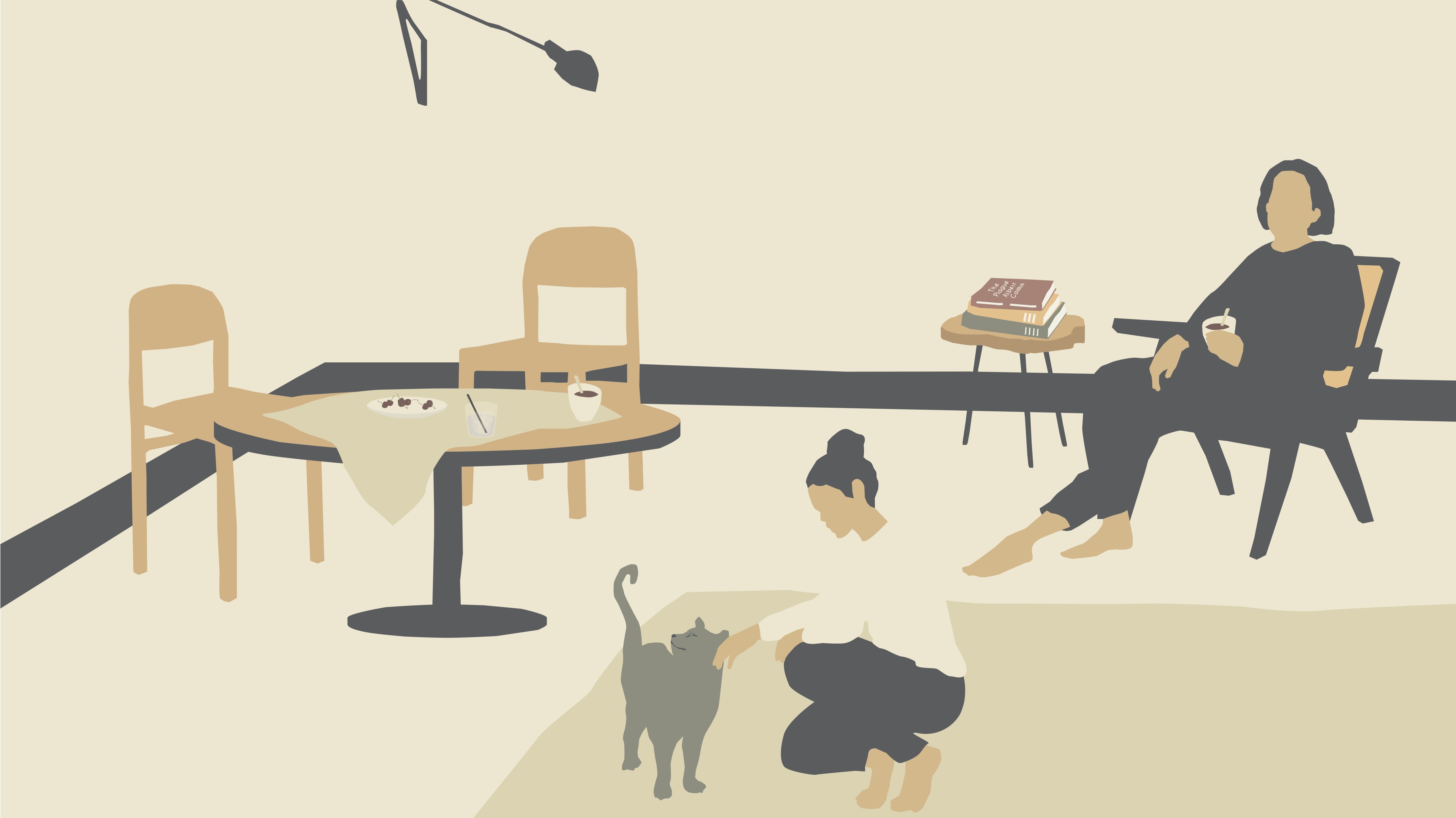Untamed Hearts

As of late March, the full extent of the American COVID horror was not yet in view—the morbidity, the cupidity, the stupidity. But already my family and I were wondering, How are we going to cope?
Our brilliant idea: adopt a cat. Of course, many other people were having the same brilliant idea; shelters everywhere were about to be emptied. Still, we thought our idea our own, even if, as we needed a hypoallergenic cat, we weren’t too optimistic that it would actually work out. But then a shelter e-mailed to say a five-month-old Russian Blue had been abandoned in Louisiana, brought to Georgia, then shipped up to Connecticut, where she was spayed, all in a week.
We rushed down to get her. The kitten was a perfect fog gray, with yellow green eyes and Yoda ears; we loved her instantly. Our love, however, was not requited. She had, we noticed, hissed at the shelter manager, and now, on the way home, when we tried to pet her reassuringly, she hissed at us, too. She also swiped, drawing blood. Ever optimistic, we named her Natasha, after Natasha Rostova, the lively Russian beauty in War and Peace.
Two weeks later, though, glaring out at us from under our kitchen island, she looked more like Osama bin Laden. This was actually an improvement over her first few days, when she had crouched at the back of her carrier and refused to come out even for food. But how long would she stay under the island? Its legs were four inches high. Wasn’t it hard not to be able to sit up? I was sure she would soon realize that safety lay with these friendly humans she was keeping so aggressively at bay—that all her hissing was, well, irrational. Against her own interests. Perverse.
Still she crouched, emerging only at night. She pooped in baskets of hats, of newspaper, of laundry.
This was not the pandemic antidote we had hoped for.
Meanwhile, the news swirled. Lockdowns, ventilators, the curve. The catastrophe of 2020 was in full flood. Returning Natasha to the shelter would be nothing compared to the national disaster. But still, we could not bear the idea.
Realizing that we had to coax her out from her kitchen island redoubt, we tried spooking her with our Roomba. And sure enough, when it headed diligently under the island, Natasha came shooting out. She fled into our daughter’s room. We quickly shut the door.
Now we sat as close by her as she would tolerate every time we fed her. We spent hours hanging around her vicinity. We stopped taking her hissing so “personally,” as my daughter put it. And slowly, slowly, Natasha began to relax. She began to climb in our presence. She began to play in our presence. She began to flop in our presence. She began to let us hand feed her. And one day, finally, she let my daughter pet her.
Natasha purred with pleasure.
We cried with happiness.
Natasha will probably always be a little feral. To get to pet her will always be like getting to pet a lioness—a privilege. We will never take it for granted. And neither, looking forward, will we take normality, if it ever returns, for granted, either. It will always be a blessed normality, for which we give thanks.
As for our biggest lesson—that persistent, patient love can bring about true transformation—we will not forget that. In The Plague, Albert Camus wrote that “the only means of righting a plague is common decency,” an idea in which I had not placed much stock when I first read it years ago. Now I think differently.
The end of our national plagues, literal and metaphorical, are a ways off. But in the meanwhile, my family is holding our COVID kitty close. We see hope in our beautiful, playful, curious Natasha, and have conferred on her the most august and honorifical of middle names—Snugglebunny.
This essay appeared in the Fall 2020 issue of Radcliffe Magazine.
Gish Jen, a 1977 graduate of Radcliffe College, was a 2001–2002 Institute fellow and a 1986–1987 Bunting fellow. She is an award-winning writer and the author of eight books of fiction and nonfiction, most recently the novel The Resisters (Knopf, 2020).







